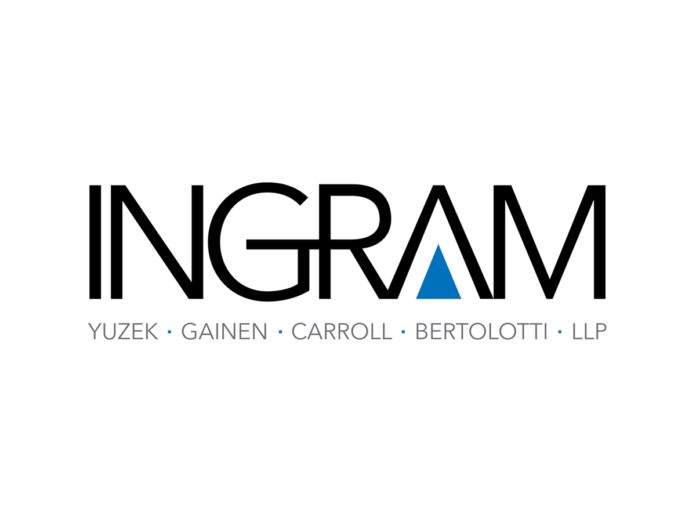We’ve previously written about the rise in NFT litigation in the United States. Not surprisingly, the global interest in this new genre of cryptographic assets has occasioned an inevitable increase in disputes involving NFTs in other parts of the world.
Earlier this year, courts in England and Singapore have rendered decisions being hailed by the crypto community as landmark rulings. In both decisions, because the defendants were unknown or outside the court’s jurisdiction, the rulings were issued on an ex parte basis (i.e., no appearance by the defendants). The case in England, Osbourne v. Persons Unknown, involved two stolen “Boss Beauties” NFTs found in the wallets of unidentified users with OpenSea accounts. Plaintiff sought to enjoin the unidentified persons and OpenSea from further transferring her NFTs. The court opined that “there is at least a realistically arguable case that such tokens are to be treated as property as a matter of English law.” According to the court, the test for granting an injunction was met, among other things, because it found that money alone could not provide an adequate remedy inasmuch as it was unclear if the unknown defendants had the funds to compensate her, and the stolen NFTs held sentimental value incalculable in monetary terms (they are reportedly worth about $5000 total).
The court also granted what is called in England as a Bankers Trust disclosure order directing OpenSea to reveal certain information regarding the unidentified wallet holders, subject to an application by OpenSea to modify such order and plaintiff to give undertakings. The court permitted service of the disclosure order upon OpenSea even though OpenSea has no presence in England (and the court thereby acknowledged the difficulty in enforcing the order), but on the assumption that OpenSea would cooperate to remedy the fraud. It is unclear whether OpenSea complied with the order but plaintiff’s Boss Beauties are currently listed as “Reported for Suspicious Activity” on OpenSea.
The ruling from Singapore is also being called the first of its kind in Singapore and Asia. The dispute involved an individual who put up his Bored Ape Yacht Club NFT No. 2162 (claimed to be rare and valuable for being the only ape wearing a beanie and not injected with a mutant serum) as collateral for a loan to borrow cryptocurrencies from an unidentified person only known as “chefpierre.” Despite specifying in the loan documents that lender would not foreclose on the NFT, when plaintiff defaulted on the loan, chefpierre transferred the NFT to his wallet and listed it for sale on OpenSea. In response to the application from plaintiff, the court is reported to have recognized BAYC No. 2162 as property, and issued a worldwide injunction against the unknown person from further transferring it. The court further reportedly granted permission to serve court papers upon chefpierre via his social media and Ethereum platform. Currently on OpenSea, BAYC No. 2162 is listed as being owned by chefpierre, but also provides that the NFT has been “Reported for Suspicious Activity.”
Another decision described as being a landmark comes from China. An unknown user of a popular Chinese NFT marketplace called NFT China minted an NFT of an artwork of a cartoon tiger receiving a vaccine shot and sold it for 899 Yuan ($137). Instead of going after the unknown user, the copyright holder of the artwork sued BigVerse, the parent company of the platform, and the court in the Chinese city of Hanzhou reportedly held that NFT China was liable for violating the copyright owner’s “right to disseminate works through information networks” and failing to check that the user owned the copyright in the artwork. BigVerse was ordered to pay the copyright holder 4,000 Yuan ($611) and NFT China was also ordered to remove the NFT from circulation by “burning” it or sending it to an inaccessible address. While the damages awarded are minimal, the ruling may have the effect of requiring NFT marketplaces to conduct more stringent vetting procedures in the future. It is noteworthy that this result likely would not have obtained in the US, where the Digital Millennium Copyright Act operates to provide safe harbor immunity from copyright infringement claims to online service providers based on user-generated content.
Lastly but not least, recent New York and English decision have made rounds in the news circuit based on the courts granting plaintiffs permission to serve unknown parties via an NFT airdrop. In LCX AG v. John Does Nos. 1-25, plaintiff, a virtual asset service provider, filed an action against unknown hackers for stealing nearly $8 million virtual assets it held on the Ethereum blockchain. The court signed an order to preliminarily enjoin and temporarily restrain defendants from transferring the assets, and also permitting the service of legal papers on the defendants by airdropping them to their Ethereum accounts via an NFT, with a hyperlink to a website publishing the order and all papers. Court records reflect that this attempt at service at least has worked to summon an appearance by counsel on behalf of the anonymous defendants, who are now opposing the injunction, contesting the validity of the service of process, requesting to dismiss the action based on jurisdictional grounds, and opposing the motion to compel the disclosure of their identifies.
The English decision in D’Aloia v. Persons Unknown involves a victim of fraud whose 2.175 million worth of Tether and USD coins were misappropriated by unknown defendants. Claimant opened an account with an online brokerage site pretending to be TD Ameritrade, transferred substantial sums of his crypto assets, and when he sought to withdraw them, his account was blocked, and induced to make further deposits to release the assets without success. As a result, claimant’s crypto assets wound up in several private addresses said to be controlled by crypto exchanges, who are the other six defendants. Similar to the Osbourne case, the English court found claimant’s case to have merit and granted the injunction sought by claimant against all the defendants except one. And the court granted claimant’s application to serve the unknown defendants by alternative means, namely, by e-mail and airdropping an NFT (with the legal papers) into the wallet of those behind the fraudulent website, which the court found to have a “greater prospect of those who are behind the tda-finan website being put on notice.”
These cases illustrate the budding development of NFT jurisprudence throughout the world, and indicate that not only are courts not hesitant to grant injunctions against unknown defendants but are willing to adopt practical solutions and adapt to new technologies. Attention will be paid going forward to see how these and other future cases will shape this evolving area of practice.
Credit: Source link






















 Bitcoin
Bitcoin  Ethereum
Ethereum  Tether
Tether  Solana
Solana  USDC
USDC  XRP
XRP  Lido Staked Ether
Lido Staked Ether  Dogecoin
Dogecoin  Toncoin
Toncoin  Cardano
Cardano  Shiba Inu
Shiba Inu  Avalanche
Avalanche  TRON
TRON  Polkadot
Polkadot  Wrapped Bitcoin
Wrapped Bitcoin  Bitcoin Cash
Bitcoin Cash  Chainlink
Chainlink  NEAR Protocol
NEAR Protocol  Polygon
Polygon  Litecoin
Litecoin  Internet Computer
Internet Computer  Uniswap
Uniswap  LEO Token
LEO Token  Fetch.ai
Fetch.ai  Dai
Dai  Render
Render  Ethereum Classic
Ethereum Classic  Hedera
Hedera  First Digital USD
First Digital USD  Aptos
Aptos  Cosmos Hub
Cosmos Hub  Pepe
Pepe  Cronos
Cronos  Mantle
Mantle  Filecoin
Filecoin  Wrapped eETH
Wrapped eETH  Stellar
Stellar  Stacks
Stacks  OKB
OKB  Immutable
Immutable  Renzo Restaked ETH
Renzo Restaked ETH  dogwifhat
dogwifhat  Arbitrum
Arbitrum  Optimism
Optimism  Bittensor
Bittensor  Arweave
Arweave  The Graph
The Graph 
